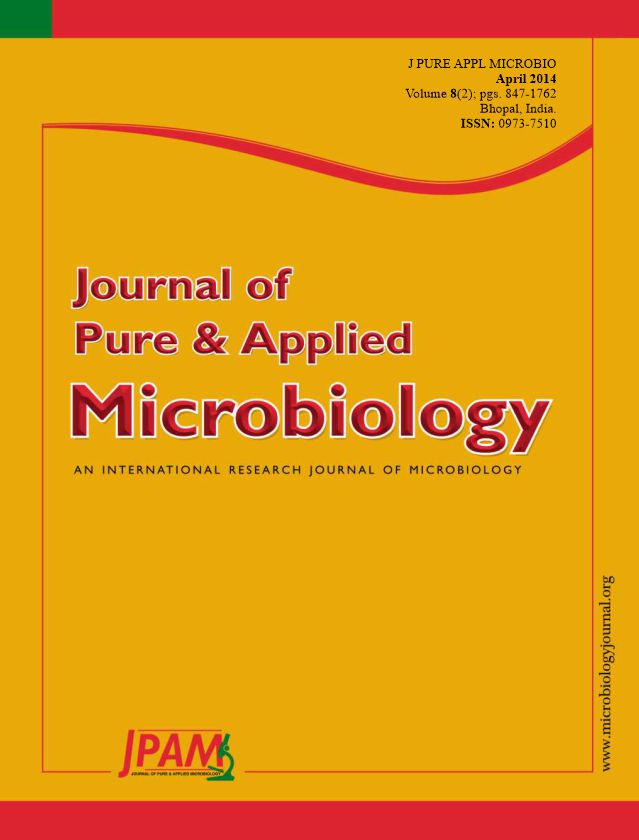Bio-ethanol has been promoted as alternative fuel because it is renewable fuel and environmental friendly compared with petroleum products. In this study ethanol production by a yeast isolate, designated as YB2 isolated from Kenyan dairy industry, in whey waste was examined. The isolate was initially identified as Pichia cactophila using RFLP of PCR-amplified internal transcribed spacers of rDNA (ITS1-5.8S-ITS2). Where size of the PCR products (450bp), and the restriction analyses with two restriction enzymes HaeIII and HinfI yielded fragments with 450 bp and 200 + 250 bp respectively. The variable D1/D2 domain of the 26S rDNA of the isolate was amplified by PCR and sequenced. The sequences were compared with known 26S rDNA sequences in the GenBank database. Results of 26S rRNA gene confirmed that the isolate was highly related to P. cactophila with similiraty100%. Phylogenetic analysis shows that YB2 shared a one cluster with P. cactophila. The fermentative performance of the strain YB2 on cheese whey to produce ethanol was evaluated at different parameters such as incubation temperature, initial pH, whey sugar concentrations, and yeast concentrations. Maximum ethanol produced by strain YB2 was achieved at pH 4.5 and 35oC. To our knowledge, there are no reports in literature on utilization of cheese whey by P. cactophila for ethanol production. This was therefore, the first time the P. cactophila was used to produce ethanol from cheese whey.
Whey, 26S rRNA gene, 5.8S-ITS rDNA, Phylogenetic analysis, Yeast; Bio-ethanol
© The Author(s) 2014. Open Access. This article is distributed under the terms of the Creative Commons Attribution 4.0 International License which permits unrestricted use, sharing, distribution, and reproduction in any medium, provided you give appropriate credit to the original author(s) and the source, provide a link to the Creative Commons license, and indicate if changes were made.


